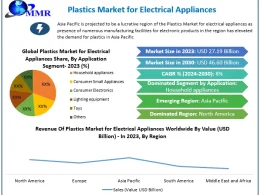The power sector is undergoing a significant transformation, driven by the increasing adoption of renewable energy sources and the need to reduce greenhouse gas emissions. This shift is being led by governments, companies, and individuals who are recognizing the importance of transitioning to a low-carbon economy. The power sector is at the forefront of this change, with many countries investing heavily in renewable energy infrastructure, such as wind farms and solar panels. As a result, the cost of renewable energy is decreasing, making it more competitive with fossil fuels. This trend is expected to continue, with the International Energy Agency (IEA) predicting that renewable energy will account for 30% of global electricity generation by 2023.
The power sector is not only driving change in the way we generate electricity, but also in the way we consume it. With the increasing adoption of electric vehicles, the demand for electricity is expected to increase, particularly during peak hours. This has led to the development of smart grids, which are designed to manage the flow of electricity in real-time, ensuring that the grid is able to meet the changing demands of consumers. The smart grid is also enabling the integration of renewable energy sources into the grid, making it possible to store excess energy generated during the day for use during periods of high demand.
The Future of Energy
The future of energy is looking increasingly electric, with many countries setting ambitious targets for the adoption of renewable energy. The UK, for example, has set a target of generating 30% of its electricity from renewable sources by 2030. This will require significant investment in renewable energy infrastructure, including wind farms, solar panels, and hydroelectric power plants. The power sector is also playing a critical role in the transition to a low-carbon economy, with many companies investing in renewable energy projects and developing new technologies to reduce emissions.
The Role of Technology
Technology is playing a critical role in the transition to a low-carbon economy, with many companies developing new technologies to reduce emissions and increase the efficiency of energy production and consumption. One example is the development of smart grids, which are designed to manage the flow of electricity in real-time, ensuring that the grid is able to meet the changing demands of consumers. Another example is the development of energy storage technologies, such as batteries, which are enabling the integration of renewable energy sources into the grid.
The Benefits of a Low-Carbon Economy
A low-carbon economy has many benefits, including reduced greenhouse gas emissions, improved air quality, and increased energy security. The power sector is at the forefront of this change, with many countries investing heavily in renewable energy infrastructure and developing new technologies to reduce emissions. The benefits of a low-carbon economy are not limited to the environment, however. A low-carbon economy also has economic benefits, including the creation of new jobs and industries, and increased competitiveness.
The Challenges Ahead
While the transition to a low-carbon economy is underway, there are still many challenges ahead. One of the biggest challenges is the need to reduce greenhouse gas emissions from existing infrastructure, such as fossil fuel power plants. This will require significant investment in new technologies and infrastructure, as well as changes to the way we consume energy. Another challenge is the need to increase energy efficiency, particularly in buildings and industry. This will require significant investment in new technologies and infrastructure, as well as changes to the way we consume energy.
Conclusion
The power sector is driving change in the way we generate and consume electricity, with many countries investing heavily in renewable energy infrastructure and developing new technologies to reduce emissions. The benefits of a low-carbon economy are many, including reduced greenhouse gas emissions, improved air quality, and increased energy security. While there are still many challenges ahead, the transition to a low-carbon economy is underway, and the power sector is at the forefront of this change.







